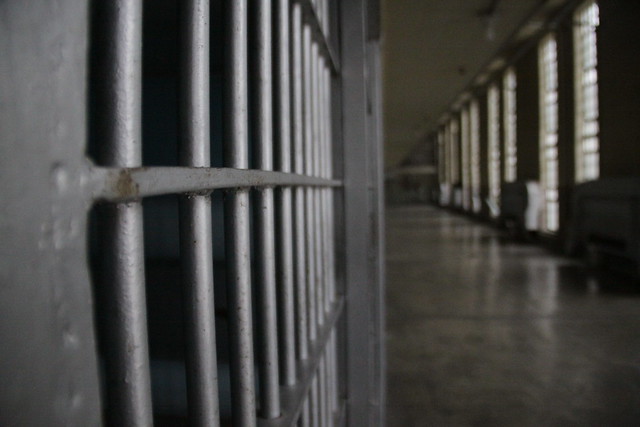With more than 2.3 million Americans currently in prison, it’s no secret that our country has a massive and flawed system of incarceration. However, those numbers don’t accurately reflect the complementary and often hidden system of “community supervision,” where individuals are placed on probation prior to, and often instead of, prison, or are placed on parole when released early from prison. Nationally, over 4.5 million Americans are on probation or parole, nearly twice the number behind bars. However, although both options were originally intended as alternatives to incarceration, parole and probation have both since become a pathway to incarceration.
Within their own communities, individuals on probation and parole agree to be held under surveillance and live according to a certain set of regulations, which vary according to each state and even each sentencing officer. These can include provisions on nighttime curfews, drug tests, contact with specific people, mandatory check-ins, etc. However, an individual under community supervision can be sent to prison for a technical violation of any of these set conditions without even committing a new crime. According to the Bureau of Justice Statistics in 2016, about 19 percent of the 600,000 people entering the country’s prisons that year were incarcerated because of parole violations. In Missouri alone, a third of new prison admissions consisted of parole violators. These cases exemplify the sad irony that individuals who are on probation as an alternative and more lenient punishment to prison can then be sent to prison for a minor technical violation of their parole, even though the original crime wasn’t deemed severe enough to merit jail time.
Compared to traditional incarceration, the system of community supervision is also systematically underfunded. For example, the American Probation and Parole Association recommends a 50-1 caseload, but some places such as Washington DC require parole officers to act as both social workers and law enforcement officers for more than three times the national standard. To offset a lack of funding, courts in over 44 states can and often do require individuals to pay their supervision fees, a financial burden that falls disproportionately on low-income communities. In Massachusetts, the poorest populations have probation rates that are 88% higher than the wealthiest ones, which reflects the larger issue of the disproportionate impact of incarceration on low-income communities that is consistent throughout the entire prison system. The failure to pay fees can lead to arrest warrants, driver’s license suspensions, and other additional burdens. Unable to pay, many are caught in mounting criminal debt or jail, as failing to pay probation fees can be considered a technical violation and send the individual to jail. Furthermore, the additional financial burden can also create housing and food instability, as well as a multitude of other conditions that increase the likelihood of violating supervision conditions. For example, low-income individuals are often disadvantaged by a lack of access to transportation, which can decrease their ability to attend meetings with supervising officers. As a whole, the regressive system of community supervision only criminalizes the poor, rather than focusing on punishing crimes committed.
In 1983, the US Supreme Court ruled that courts must first consider whether the defendant has the ability to pay but “willfully” refuses to do so before incarcerating someone, but it was unclear on how judges should determine what exactly that means. Therefore, across states and among judges, there are large discrepancies on how courts make these quick decisions. A new law going into effect later this year in Louisiana, a state with some of the highest probation fees in the country, is hoping to improve this process by holding hearings on ability to pay and subsequently reducing or waiving fees for those with financial hardship.
Another pipeline to incarceration involves a lack of support services, most notably those dealing with mental health and substance abuse, even though courts commonly re-incarcerate these individuals for drug related violations. Many prisoners struggle with substance abuse, with over half of the national prison population meeting the DSM-IV medical criteria for substance abuse or addiction in 2010. Once released, parolees return to an environment with abundant transitional stressors, as well as easier access to drugs. The lack of support services for substance abuse and mental health, which frequently correlates with substance abuse issues, fundamentally subverts the basic premise of community supervision programs in helping individuals succeed in their natural communities rather than in prison.
Although varying on a state-wide level, many flawed aspects of the probation and parole clearly funnel many of its participants into the prison system. There is good news though: Across the country, states are realizing that it would be cost-effective to invest in reforming their probation and parole structures, driving down overall numbers and costs of incarceration. In Rhode Island, which has one of the lowest national rates of incarceration yet one of the highest rates of probation, legislators in 2017 passed a bipartisan justice reinvestment package. It seeks to improve the parole and probation system, including a system to appeal parole violations and a Superior Court diversion program to provide better support services. With the policy component passed only a year ago, it will be interesting to see how this will impact re-incarceration rates in the state as it takes effect within the next few years.
The current system of rotating individuals through community supervision programs and jail cells is both costly to taxpayers and serves no real purpose of just punishment or effective rehabilitation. Within a national context of prison reform, addressing the flaws in parole and probation programs will help down-scale our system of mass incarceration.
Photo: “Prison Hall“
